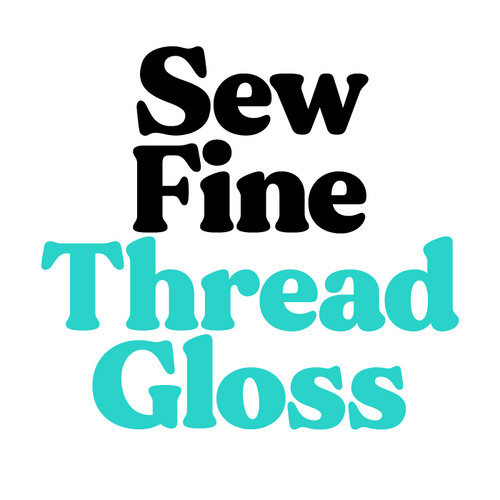FAQs

How is beeswax made?
Beeswax (cera alba) is a natural wax produced by honey bees of the genus Apis. The wax is formed into "scales" by eight wax-producing glands in the abdominal segments of worker bees, which discard it in or at the hive. The hive workers collect and use it to form cells for honey storage and larval and pupal protection within the beehive. Chemically, beeswax consists mainly of esters of fatty acids and various long-chain alcohols. 1
Beeswax is not considered vegan. Because bees secret their wax as a bodily process, it’s “classified” as an animal byproduct.
What type of beeswax do you use?
Our beeswax has been filtered once to remove any leftover honey and hive particles. It has not been bleached. It does not have any clay or additives to make it “white”. The beeswax we use is one step away from the hive and has a lovely light amber colour. By using product that has not been chemically processed, we are supporting the apiary industry and producing a more naturally based product.
Did you know that the colour of honey and beeswax depends on what type of flowers (and time of year) the bees collect pollen from?
My thread gloss has developed a white cast — what’s going on?
This is called “bloom” and all 100% natural beeswax blooms. It is a natural occurrence that usually happens when there is a change in temperature (season, climate or storage), and is simply the process of the softer oils rising to the surface. Do not worry — this is not mould/mold, as beeswax does not go bad/rancid. If you want to get rid of it, simply buff the surface with your thumb. Please note that the bloom might come back if it is exposed to similar cool temperatures, but it is perfectly normal and won't affect the quality or usage of your thread gloss.
My thread gloss used to feel soft and now its harder — what’s going on?
Natural beeswax reacts to our climate and its surrounding temperatures. It expands when hot and shrinks when cold. If you haven’t used your tin since the summer, its now winter, and it feel more solid than it used to that's because it has contracted due to the cold. It is still perfectly fine to use! Beeswax has no expiration date, but if you’re wanting to refresh the top layer see below.
Because beeswax does not go bad, there have been some very interesting historical discoveries over the years, including Neolithic dental fillings made of beeswax, as well as candles still usable (if they weren't a historical artifact) from the 6th/7th century AD! 2
My thread gloss feels dry and crunchy on top — what’s going on?
You've probably got a case of linty buildup! The quickest way to get rid of this is to take a butterknife or your thumbnail and scratch away that top layer of lint and dirty beeswax. See the image below — the left side is dirty and linty, and the right side has been cleaned up by scratching off the top layer. A quick and easy refresh!

What type of fragrances do you use?
The fragrance oils that we use are phthalate-free and safe to use in cosmetics products. This is important to us because, although Sew Fine Thread Gloss is not a skin/body product, it does come into contact with the skin of your fingers, and even the slightest amount of absorption of any kind needs to be considered. We aim for a light ratio of fragrance oil, so that the scent is not overpowering. We also produce a “natural” thread gloss which is unscented by fragrance oils, and has only the natural scent of the beeswax.
Also to note, we do not use essential oils. Why? Essential oils are natural oils extracted from the plant it is derived from. Being a biological product makes it prone to aging and decomposition, regardless of any chemicals used to prolong its life. AKA — they have a shelf life. As they age their fragrance can change (they go rancid) and the oil itself darkens. For a product that may leave traces on your treasured quilts, we would hate for these oils to weaken the threads and potentially weaken and stain the fabrics. We are a quilters too, and we would never use an essential oil in our products for those reasons. Please read my blog post which goes more into detail about this topic.
Do you wholesale?
Why yes we do, thanks for asking! We currently wholesale to independent fabric/quilt shops across Canada, the United States, the UK and Australia.
As we re-launch under the Soak Wash Inc. family, we look forward to you joining our wholesale family. If you are already a wholesale customer of Soak Wash Inc., high five and hang tight for more updates.
If you are new to Sew Fine Thread Gloss, welcome! Sew Fine Thread Gloss wholesale sales will be transitioning to the Soak Wash Inc. wholesale world. Join our wholesale newsletter for updates.
Please click here to set up a Soak wholesale account. Tanja will be your point person at Soak for ordering. She can be reached here with any questions and looks forward to hearing from you.
Custom scents...
We’re currently not taking requests for custom scent development. Should availability open up for custom work we’ll edit this section.
Will you donate to our guild/retreat/SAL, etc.?
This is handled on a per-request basis. Please get in touch with an overview of your event/retreat/workshop, and what you’re looking for, and we can discuss.
Sources:
